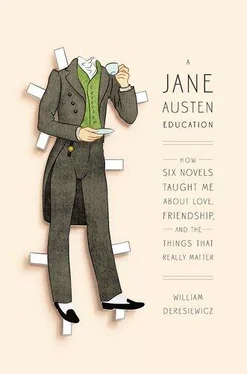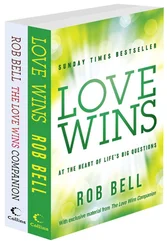Mr. Woodhouse was fond of society in his own way. He liked very much to have his friends come and see him; and from various united causes, from his long residence at Hartfield, and his good nature, from his fortune, his house, and his daughter, he could command the visits of his own little circle, in a great measure, as he liked. He had not much intercourse with any families beyond that circle; his horror of late hours, and large dinner-parties, made him unfit for any acquaintance but such as would visit him on his own terms.
No metaphors, no images, no flights of lyricism. This hardly seemed like writing at all. Aside from the slightly dated vocabulary, it was more like talking.
But then I started to look more carefully. Mr. Woodhouse was, in the language of Austen’s day, a valetudinarian, or sort of professional invalid. No one seemed weaker, no one more powerless. And yet in just three sentences, by the subtlest of means, Austen established him as a man who used that weakness to control the world around him. There were fewer than a hundred words in that passage, and fully seventeen, nearly one in five, were pronouns that referred to him: “he,” “him,” “his.” “His” fortune, “his” house, “his” daughter—everything, as it were, was “his.” The passage started with his name, and his power was affirmed at the end of every sentence. He did things “in his own way,” “as he liked,” and “on his own terms.”
This, I now saw, was how all of Austen’s language worked. No strain, no display, no effort to awe or impress. Just everyday words in their natural order—a language that didn’t call attention to itself in any way, but just rolled along as easily as breathing. It wasn’t the words that Austen used that created her effects, it was the way she used them, the way she grouped and balanced them. And so it was, I saw, with her characters. A thousand authors could write novels about ordinary people, but only one of those books would be Emma. Austen’s characters came to seem so vivid, so meaningful, because she put them down on the page exactly the way she placed her words: without condescension, without apology, but with a masterful talent for arrangement. Emma was balanced by Jane Fairfax, and Miss Bates by Harriet Smith, and Mr. Martin by Mr. Elton, and all of them by one another, setting the whole story in motion and creating scenes that felt as natural as real life. It didn’t matter how small the frame was, because it contained a whole world.
As it turned out, people had been reacting to Jane Austen exactly as I had for as long as they’d been reading her. The first reviews warned that readers might find her stories “trifling,” with “no great variety,” “extremely deficient” in imagination and “entirely devoid of invention,” with “so little narrative” that it was hard to even describe what they were about. Austen herself, who liked to collect her friends’ and family’s opinions of her books, recorded that a certain Mrs. Guiton found Emma “too natural to be interesting.” Madame de Staël, an illustrious French intellectual, thought her work “ vulgaire ”—which makes it just as well that Austen declined to meet her formidable contemporary at a London dinner party when she had the chance.
Austen knew that she wasn’t creating for just anybody. “I do not write for such dull Elves,” she said of Pride and Prejudice, adapting some lines of poetry, “As have not a great deal of Ingenuity themselves.” And Emma, she knew, would be the hardest challenge of all. “I am going to take a heroine,” she said as she was about to start working on the novel, “whom no-one but myself will much like.”
But from the beginning, there were readers of discernment who recognized her genius behind the façade. No less a judge than Sir Walter Scott, the leading writer of her day, author of epic poems and sweeping historical novels like Ivanhoe and The Bride of Lammermoor, confessed her superiority:
That young lady had a talent for describing the involvements and feelings and characters of ordinary life which is to me the most wonderful I ever met with. The Big Bow-wow strain I can do myself like any now going; but the exquisite touch, which renders ordinary commonplace things and characters interesting, from the truth of description and sentiment, is denied me.
Another critic poked fun at readers who thought that there could be but “little merit in making characters act and talk so exactly like the people whom they saw around them every day,” not recognizing that, as with Mozart or Rembrandt, the highest art lies in concealing art. Such readers, he joked, were like the man who couldn’t see why everyone was making a big fuss about a certain celebrated actor, “who merely behaved on the stage as anybody might be expected to in real life.”
Her reputation slowly grew, but by the late 1800s there were only two opinions about Jane Austen. Either you loved her or you hated her. Mark Twain, a famously exuberant hater, swore that reading Austen made him feel “like a barkeep entering the kingdom of heaven.” “It seems a great pity to me,” he taunted an Austen fan, “that they allowed her to die a natural death.” “Every time I read Pride and Prejudice, ” he told another friend, “I want to dig her up and hit her over the skull with her own shinbone.”
But if you loved her—if you “got” her—you felt like you’d joined a secret club, with its own code words and special signs and degrees of initiation. It was a creed, in the words of one writer, “as ardent as a religion,” and “a real appreciation of Emma ,” her subtlest book of all, was “the final test of citizenship in her kingdom.” Rudyard Kipling, very much a citizen himself, celebrated the phenomenon in “The Janeites,” a story about Austen worship in, of all places, the trenches of World War I. “Jane?” says Humberstall, the simple-minded veteran at the heart of the story—
Why, she was a little old maid ’oo’d written ’alf a dozen books about a hundred years ago. ’Twasn’t as if there was anythin’ to them, either. I know. I had to read ’em. They weren’t adventurous, nor smutty, nor what you’d call even interestin’—all about girls o’ seventeen . . . , not certain ’oom they’d like to marry; an’ their dances an’ card-parties an’ picnics, and their young blokes goin’ off to London on ’orseback for ’air-cuts an’ shaves. [Which is exactly what Frank Churchill does in Emma .]
Yet once Humberstall was accepted into the brotherhood—“it’s a very select Society, an’ you’ve got to be a Janeite in your ’eart”—he came to understand her true worth. “I read all her six books now for pleasure ’tween times in the shop. . . . You take it from me, Brethren, there’s no one to touch Jane when you’re in a tight place. Gawd bless ’er, whoever she was.”
The very first review of Emma was written by none other than Sir Walter Scott himself. If people had trouble recognizing the value of the novel’s portrait of daily life, he said, if they thought of it as a book in which “nothing happened,” that’s because they were so used to reading novels in which all too many things happened. Austen lived in the great age of trash fiction: the gothic novel, the sentimental novel, the bodice ripper—crumbling castles, creaking doors, and secret passageways; heavenly maidens and dark seducers, piercing shrieks and floods of tears, wild rides and breathless escapes; shipwrecks, deathbeds, abductions, avowals; poverty, misery, rape, and incest. And of course, at the last minute, by grace of the author and a heap of coincidences, a happy ending.
Читать дальше












